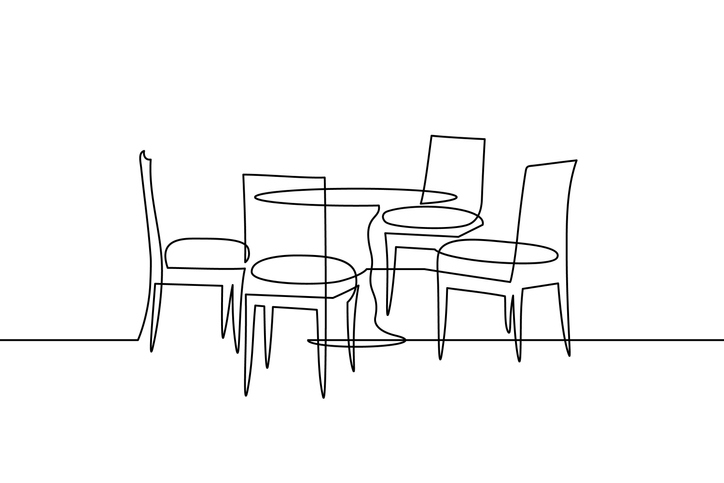As I write this, we are just finishing with the holiday season. Holidays typically mean extended time with family and friends, being able to slow down, take a break from work and sit around the table for shared meals more often than on busy workdays.
In daily life, where schedules are demanding, family dinners or meals with friends fall by the wayside. But amongst the long list of expectations that fall on parents’ shoulders, the centrality of the family meal as a ritual endures. Countless studies have always made inflated claims about the benefits of families eating together. These meals are described as leading to ‘better social and emotional health for all involved’, with a ’positive impact on family communication and functioning, the development of healthy eating patterns in children, and improved school performance … [or even] as a protective factor in reducing the risk for adolescent addiction’. Big claims indeed! (And I wonder whether these perceived benefits are the result of family meals themselves, or whether families that are fairly close to each other to begin with, tend to prioritise shared meals).
All this places needless pressure on busy parents who, for whatever reason, just can’t manage family meals, or can’t manage daily. There is clear idealisation in family meals seen as a refuge or anchor, a ‘clear and stable point in the family life, which provides everyone with a beginning sense of structure and belonging’ as noted for example by Haim Omer in “Courageous Parents: Becoming a Good Anchor for Your Children” (2021). Though in all idealised aspirations, there is a kernel of truth.
or anchor, a ‘clear and stable point in the family life, which provides everyone with a beginning sense of structure and belonging’ as noted for example by Haim Omer in “Courageous Parents: Becoming a Good Anchor for Your Children” (2021). Though in all idealised aspirations, there is a kernel of truth.
The idea of family meals brings with it nostalgia and a yearning for simpler times, symbolising order and belonging, ‘everything in its place’. The truth is messier: as often as family meals bring everyone together to relax after a busy day, they just as easily can dissolve ‘into a failing effort to find out what happened at school or a nag-fest over mealtime manners.’ Sometimes they can be filled with silence, revealing the cracks in family relations. Or they can be a hurried parallel-eating encounter, with everyone glued to screens.
…Or maybe family meals with adolescents don’t happen at all. Teens might opt for the privacy of eating in their rooms despite their parents’ (understandable) objections; or meals may not work due to parents’ long work hours. (I would expand the definition of ‘family meal’ to include dinners with housemates, couples sharing a drink, or single parents eating with their children. The common thread in all these different versions of family is the nostalgic, symbolic representation of a wish for ‘unity and stability’ versus the reality).
Moving away from the aspirational and, ultimately, judgmental claims about why and when we should have family meals, how about a simpler idea? A daily or several times weekly ritual of shared meals offers a perfect opportunity for observation. This brings to my mind a psychotherapy approach for parents and infants called ‘Watch wait and wonder’. This does what it says on the tin: watching (=observing), waiting for a while, and then internally wondering or reflecting about what’s going on in the moment to moment dynamics. Observing small and bigger things. This isn’t about communicating these observations to others, just noticing changes over time.
For shared meal times with adolescents, this would look like: watching what’s going on, waiting for a bit (giving space), and then wondering how things are, without jumping in with comments or interpretations.
In this light, the shared meal becomes a space for observation and (internal) reflection, a window for insight into relationships that can be checked over time. Questions that might come up:
- Is the adolescent is involved in meal preparation?
- Is there a comfortable discussion at the table?
- Is there silence?
- Does the teenager accept what the parent cooks?
- Does the parent accept what the adolescent cooks?
- Does the teenager join in with the meal or do they stay in their room?
- Do family members seem lost in thought?
- Is anyone looking at a device?
- Who prepares the meal?
- Who clears it up?
- Have their been any recent changes?
It’s not about right or wrong, but simply about observing and thinking. We can watch, wait and wonder about all this during this everyday shared moment that usually passes unobserved, making it a snapshot of family relationships. Which involve love, care and more unsettled realities weaved in: